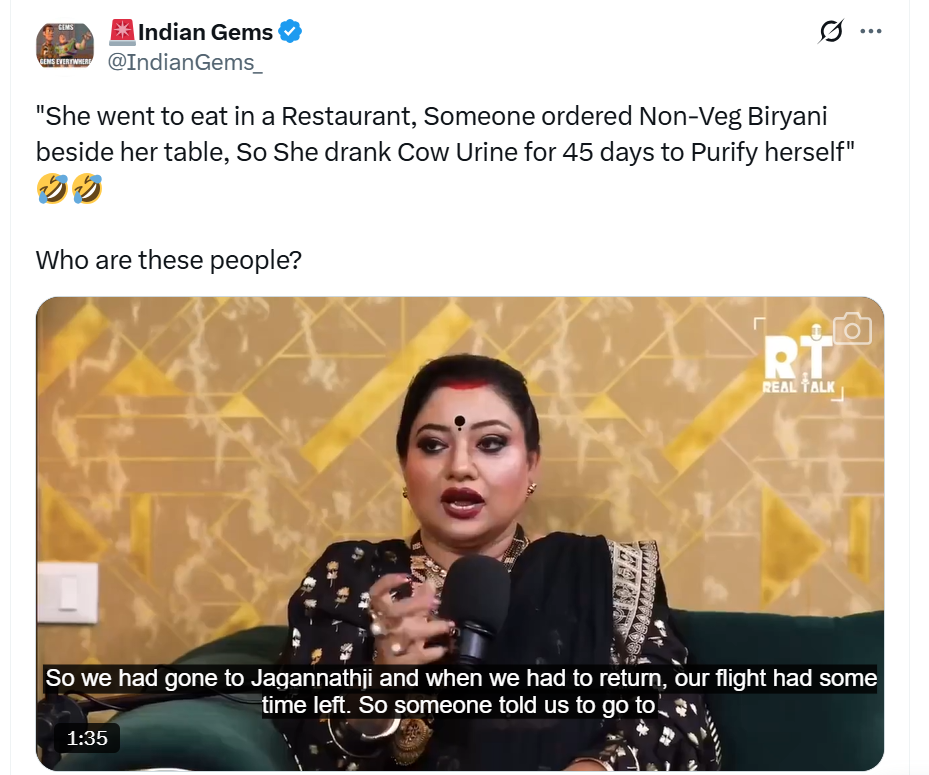
This narrative, reportedly promoted by a self-proclaimed bjp supporter or "bhakt," is emblematic of how hyper-nationalist or hyper-religious rhetoric often merges personal belief with public life in harmful ways. Restaurants are shared spaces in a pluralistic society, and the idea that one person’s meal can spiritually “taint” another person to the extent that extreme measures are required is not just irrational—it’s exclusionary.
It implies a hierarchy of dietary morality that shames others for choices protected under a democratic framework of personal liberty. When public discourse is reduced to such theatrical displays of religious sensitivity, it undermines the broader values of tolerance and coexistence.
 What’s most concerning is how these kinds of statements are increasingly normalized or even celebrated in certain political and media circles. The glorification of symbolic acts like drinking cow urine—often presented as acts of devotion or patriotism—distracts from real issues like healthcare, education, and social equity. It also risks turning faith into a spectacle used for political validation rather than spiritual growth. In a diverse nation like India, respecting differences—whether dietary, cultural, or religious—is essential. When ideological extremism replaces empathy and common sense, the social fabric begins to tear.
What’s most concerning is how these kinds of statements are increasingly normalized or even celebrated in certain political and media circles. The glorification of symbolic acts like drinking cow urine—often presented as acts of devotion or patriotism—distracts from real issues like healthcare, education, and social equity. It also risks turning faith into a spectacle used for political validation rather than spiritual growth. In a diverse nation like India, respecting differences—whether dietary, cultural, or religious—is essential. When ideological extremism replaces empathy and common sense, the social fabric begins to tear.




 click and follow Indiaherald WhatsApp channel
click and follow Indiaherald WhatsApp channel